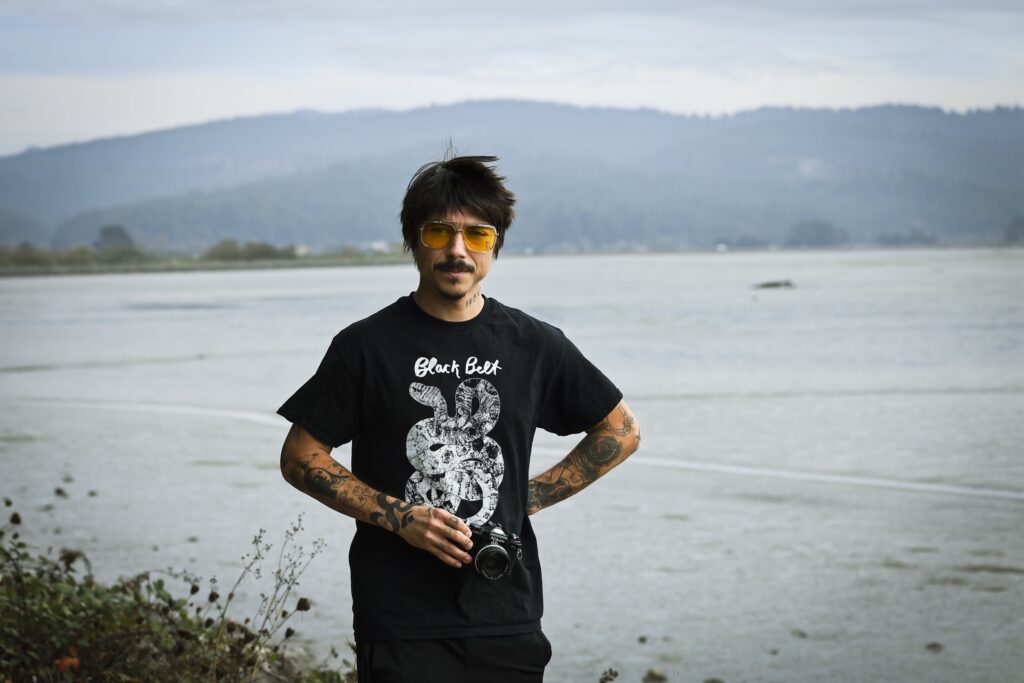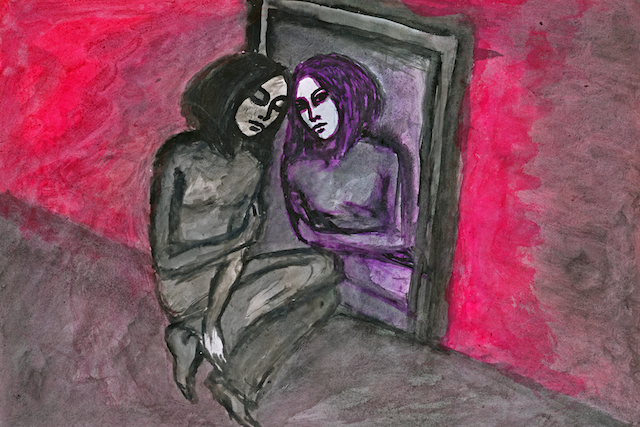‘We All Talk to Spirits When We Are Identified as Numbers’
Tony Koji Wallin-Sato’s poetry asks what it means to be free and reckons with the legacy of the incarceration of Japanese Americans during World War II. The post ‘We All Talk to Spirits When We Are Identified as Numbers’...

Tony Koji Wallin-Sato’s poetry asks what it means to be free and reckons with the legacy of the incarceration of Japanese Americans during World War II.
By Tony Koji Wallin-Sato Apr 20, 2025 Tony Koji Wallin-Sato
Tony Koji Wallin-SatoWhat does it mean to be free? And what does it mean to return home? These questions lie at the heart of Tony Koji Wallin-Sato’s poetry. A formerly incarcerated Japanese American writer and a longtime Zen practitioner, Wallin-Sato currently serves on the board of directors of the Boundless Freedom Project, facilitating Buddhist and mindfulness programming in youth and adult facilities. His latest collection of poetry, Okaerinasai (a Japanese expression used to welcome someone home), documents his experience of incarceration, as well as his subsequent path to advocacy work. Interpolating passages from Dogen’s Genjokoan and Basho-inspired haiku, the collection offers lyrical meditations on addiction and recovery, the nature of freedom, and the aftermath of generational trauma.
–Sarah Fleming
We All Talk to Spirits When We Are Identified As Numbers
Barracks A fabricated you as illusion.
Cheap crime novels and mindfulness
pamphlets scattered beneath steel
bunks. Heel-pressed shower shoes
and half-emptied ramen packets.
Photos of faces wither, like queen
of the garden in hardened snow,
desquamate across concrete,
held in place by peeled deodorant
labels (tape is a commodity).
You appeared one night after a riot,
soil-covered getas, worn-thin kimono,
hair pinned like a serpent coiled.
Two rifle shots quieted the stampede,
pressurized from the central valley heat
like an old Toshiba rice cooker, viscid
yam jumpsuits and absent summer squalls.
You walked through our lockdown
as if plucking daisies (only I could observe
your features). You sat on my bunk,
in your open palm a conical red fruit,
perfectly elongated. When was the last
time I had something so sweet?
You whispered this land was once
all strawberry fields, aligned next to grape
vines from highway 99 to Mather Airforce
Base. The Yoshinatas along Elder
Creek, Tanikawas and Miyatas north
of San Joaquin, and you, Mary
Tsukamoto, east of the maroon-
leaf maple off French Road.
Two thousand relocated to landscapes
unable to bear viridescent foliole
or underground root communities.
Desert sand disintegrates germinated
seeds, fragmenting the receptacle,
degenerating our vascular bundles,
our transposed bodies, huddled
against brittle rows of eroded soil.
Sutras were smuggled as contraband,
jasmine leaves hidden in nihongami.
The Laguna Creek Watershed empty
of tatami and center-lit butsudans.
The Buddhist Church hallways off Florin
silent as the fallout after detonation.
Sandstone patterned koi, belly
up beneath the rainbow bridge.
Seventy years later, here I am in my own
internment, walking the yard geocentrically
centered to Tule Lake and Manzanar, side
by side with a ghost atop hardpan
and scattered Swainson Hawk feathers.
You asked me, Tony, are you home?
My hands are not my hands. My tattooed
knuckles fade with each pulsated fist. Chess
piece ink, bold B-U-D-D/H-I-S-T letters dwindle
in the evanescence. My kitsune mask chips
away, the layers of my otherness revealed
in the floodplain moonlight. You dissolve
when first rain appears, heavy summer
torrent, leaving me to pace alone
between the wired walls and my reflection.
♦
From We the Gathered Heat: Asian American and Pacific Islander Poetry, Performance, and Spoken Word, edited by Franny Choi, Bao Phi, Noʻu Revilla, and Terisa Siagatonu. Reprinted with permission from Haymarket Books.
![]()
Thank you for subscribing to Tricycle! As a nonprofit, we depend on readers like you to keep Buddhist teachings and practices widely available.

 JimMin
JimMin 
































